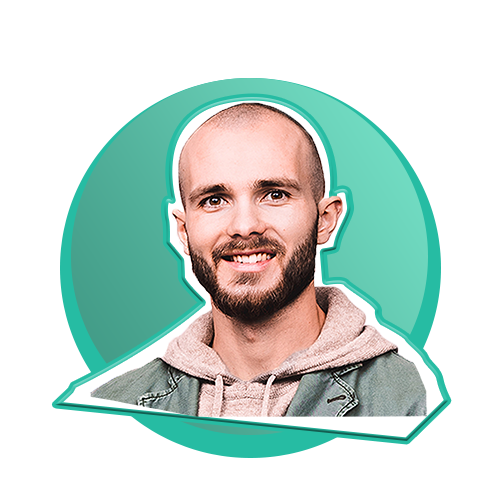8 Learnings: The growth journey of AI startup Legora
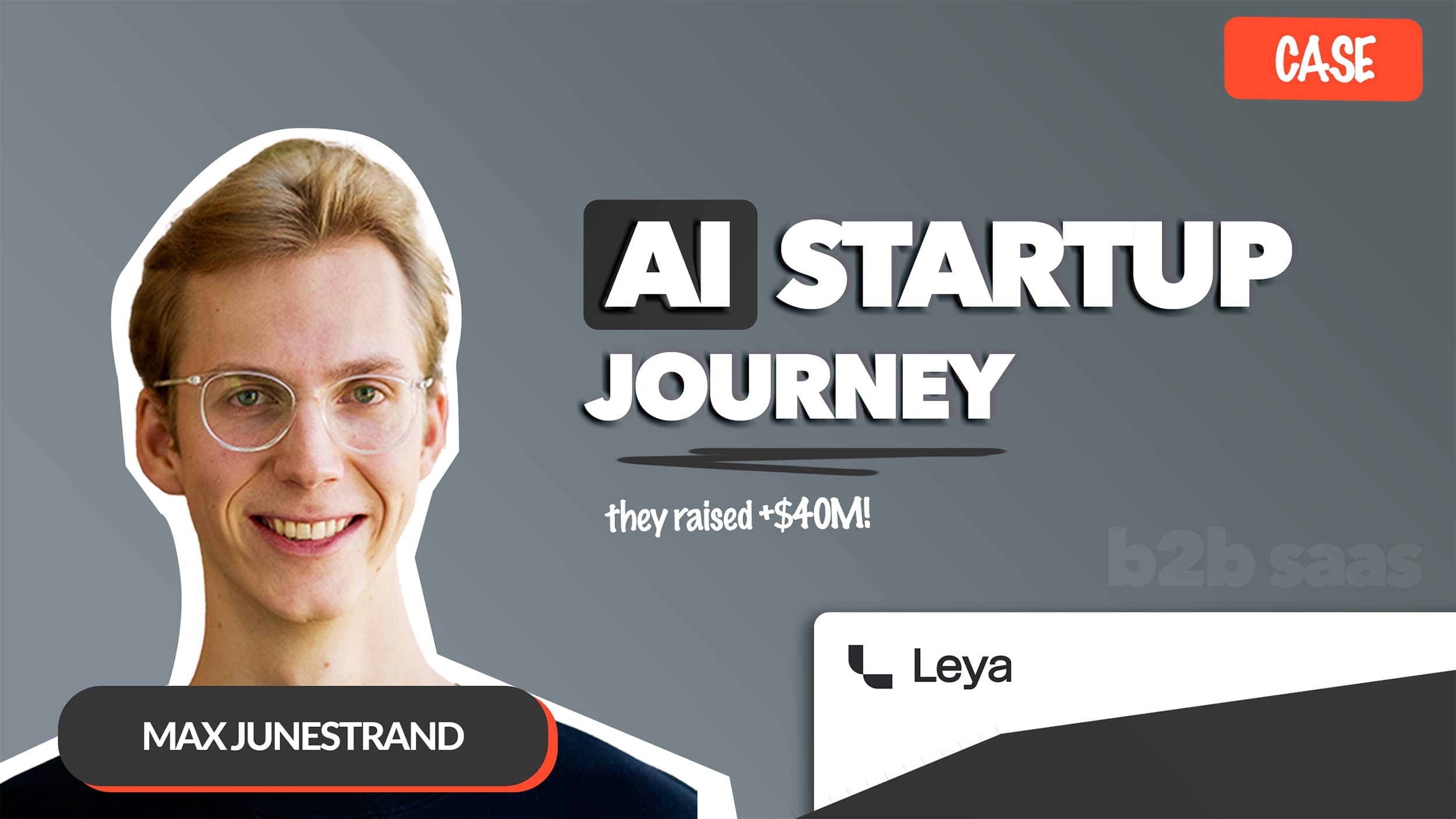
Contents
Introduction
Are LLMs and AI the new startup revolution? Vertical AI SaaS now grow faster than ever. And startups like Legora has gotten a rocket start to their journey, raising close to $40M in funding almost within 1 year from start.
Here are some learnings from the hyper growth journey of Legora so far, from their CEO and Co-Founder Max Junestrand. This post is a summary from an exclusive talk Max did together with Y Combinator's Gustaf Alströmer - with some added thoughts and reflections.
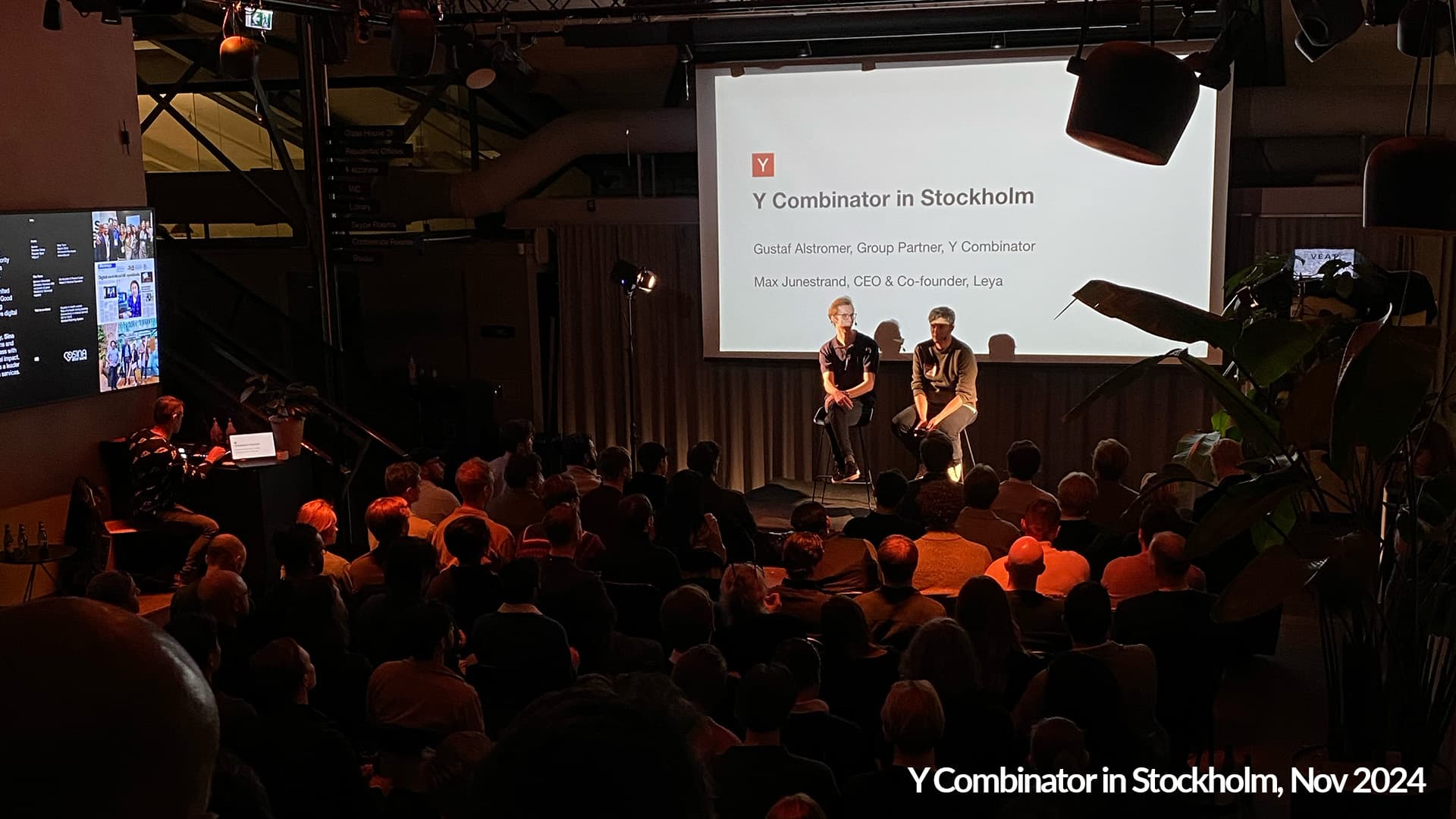
About Legora
Legora (formerly known as Leya) is a legal tech AI startup and YC alumni that has grown fast, raised almost 40M dollars, and are using LLMs at their core.
What is Legora?
In short, Legora has developed AI agents to help legal professional get more done. And are then building a full legal workspace around this.
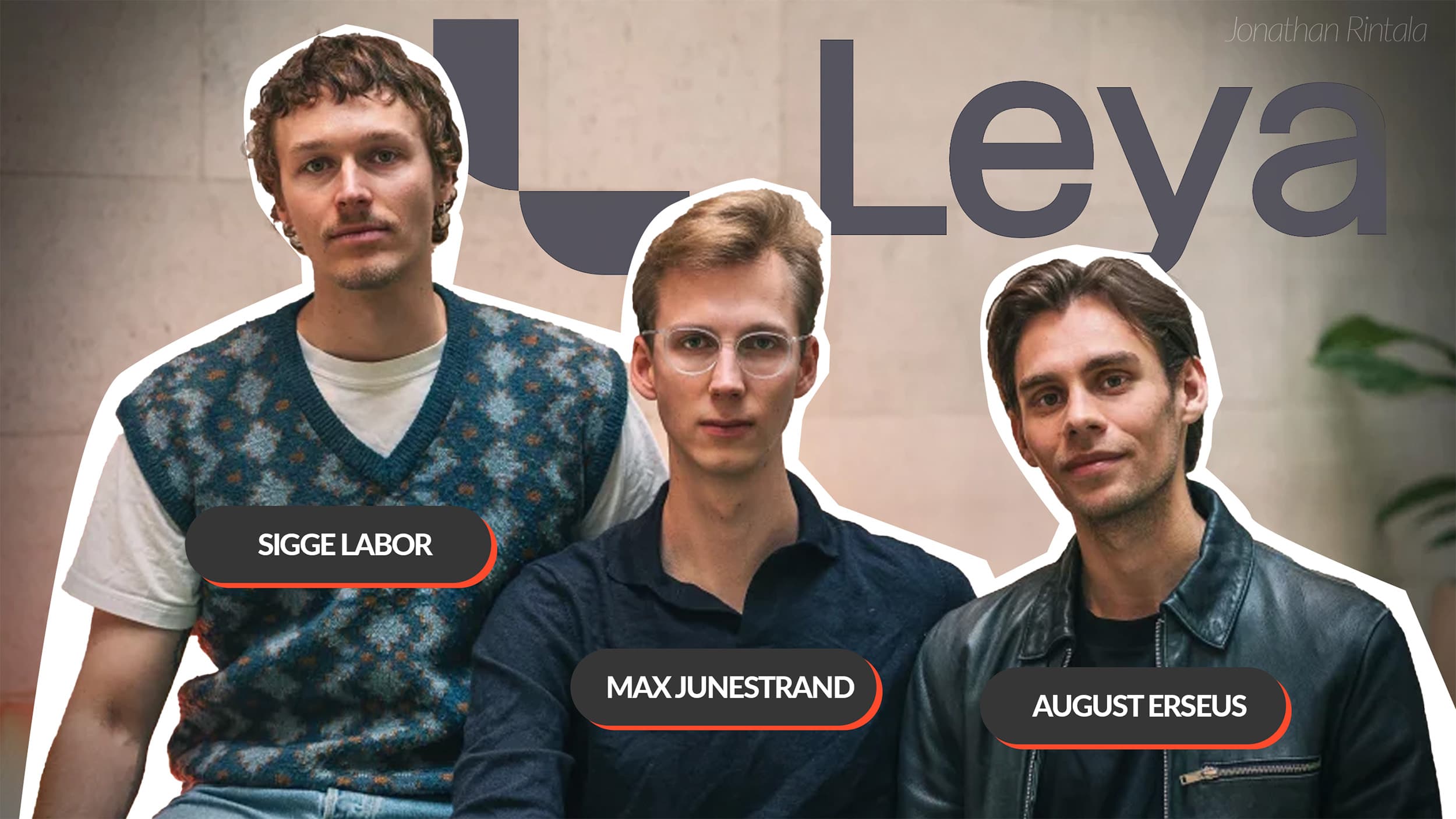
With a team of engineers and lawyers from Google, Microsoft, McKinsey, and top-tier law firms, Legora is on the mission of equipping lawyers everywhere with trustworthy AI.
Who is Max Junestrand?
Max Junestrand is the Co-founder and CEO of Legora, participant of Y Combinator’s past winter batch and recently raised a total of $35M from investors including Benchmark and Redpoint.
8 Learnings from the growth journey of AI startup Legora
Max Junestrand shared some learnings from their journey with Legora below.
1. Be very coachable
Be very coachable and transparent when running sales (and other tasks) as founder. It is a super power. And it makes people want to help you. Max has used this when running founder led sales at Legora.
If you are a first time founder - don't try to hide it. Instead be very open with it. You don't have all the answers. You are not a polished sales rep. That's exactly what will make people buy from you. They want to help you out, and join your journey.
I think this is way underrated - and something I have used successfully a lot. Especially in sales, cold calling, and running SaaS demos. Be human. Show that you don't know everything and don't have all the answers. Let people help you sell to them. Transparency always wins. For more on this topic - read The Transparency Sale by Todd Caponi.
2. Build trust through partners
In law, trust is everything. Max and the guys at Legora knew it would be hard to earn that trust as 3 engineers in their 20s - going in to the legal world and pitching lawyers their brand new AI tool.
So, they decided to partner up with Mannheimer Swartling - one of the most credible and prestigious law firm in Sweden. Suddenly every law firm wanted to talk. Lawyers are also quite FOMO driven, similar to VCs and other high status industries. That context makes this play even better for Legora.
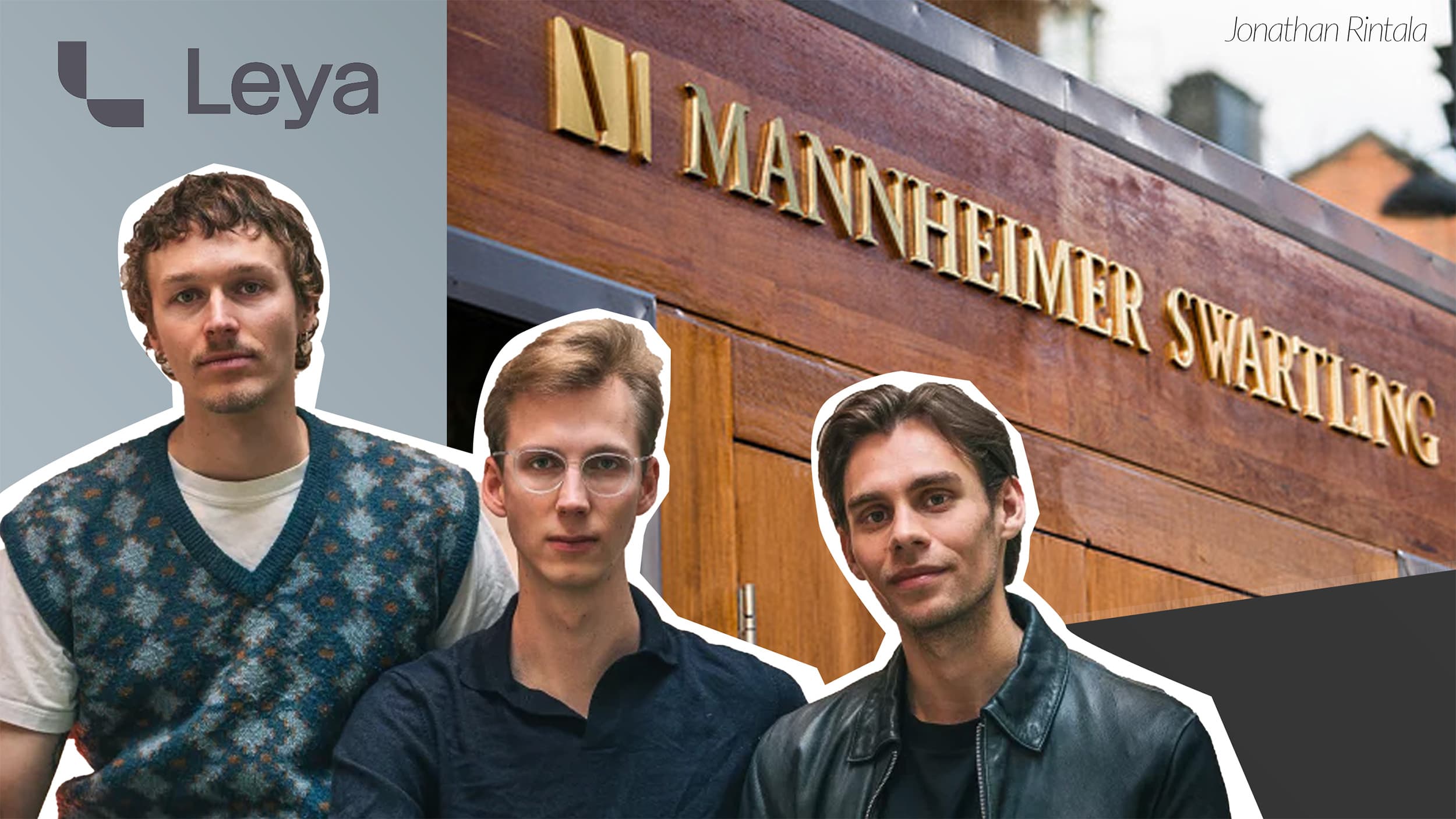
You can do the same by finding a design partner, or similar, early on- and piggy back of their reputation and trust. We actually did just this with Univid ourselves - the SaaS I built to create engaging webinars in 60 seconds. We got some of the world's biggest brands, like Facebook, as our FIRST customers.
Why?
Because we partnered up with event firms who already had the relationship and trust built for us. The event firm trusted us. And in return Facebook, Splunk, PEAB, etc. trusted us. Us being only two newly graduated engineers.
![SaaS customer acquisition through partners [example] SaaS customer acquisition through partners [example]](/_next/image/?url=https%3A%2F%2Fimages.ctfassets.net%2F0ck4z1m88rve%2F3mVfKkMGyQ3DO5Kl1ZPTJt%2F8e9bec573ec7443b9e282a6ef31d2741%2Ffirst-partner-customer-acquisition-saas.jpg&w=3840&q=75)
3. Paint a big vision and recruit customers to be part of the journey
Max and Legora have a big vision around the future of AI and legal work. They are on a mission to equip lawyers everywhere with trustworthy AI. Doing so by building a complete workspace for laywers. Like Figma for designers.
They are really good at communicating this vision. In all they do. Both with their team and to customers. By doing this - they get loyal customers that want to be part of their journey and feel excited to do so.
Thus, selling Legora goes something like:
"Hey, LLMs and legal is gonna be big in the future"
"I'm not sure on all the details, but it's going to change legal work forever, and we are on top of building a complete platform for the lawyers of the future"
"But, hey it's completely up to you. You can join today, or in a year."
"But if you are not on the journey you will be missing out. And competitor X, Y, Z is already on it."
In other words - I don't want to join sell you, I want to let you join our journey towards the big vision we have set out. It's going to benefit you big time doing it now, rather than later. Let's do this together!
4. Know your buyer, climb the ladder of social proof and use FOMO
Know everything about your ICP and buyer. This way, you know what tactics to use and where to put your efforts to reach them. And ultimately how to also convince them to buy.
Max understood things like: lawyers are FOMO driven, they bill everything per hour so their time is precious, often they have to write time off for clients at the end - meaning they work overtime "for free".
Thus, Legora could build messaging around:
Not falling behind the AI movement, when all other law firms are on it.
Save time, so you can skip working weekends that would have been written off anyways
Get senior faster (if you are a junior lawyer), or seeing larger margins by being able to hire fewer associates (if senior partner)
"AI is coming whether you want to or not. You can jump on today, or in 1 year - you decide. Either way your competitors X, Y, Z are already onboard."
Example of how to build FOMO using a strong trend and tangible evidence
Also, be aware of "the ladder of social proof" and work your way up it. You might sometimes be able to get the most prestigous brand directly (for example Mannheimer Swartling as partner) and everyone will follow. But most of the time you will have to work your way up, create FOMO, and acquire bigger and more credible brands.
5. Take risks, work hard, and be bold
To go fast you need to take risks and be innovative. Sweden is very "lagom", ie. demure. And not very bold. That also tends to translate into the startup culture. The US is generally the opposite - where startups are encouraged to be bold, charge a lot for products, dare to take risks, and fail fast.
For Nordic founders, I think YC's mindset can definitely be a healthy counterweight.
It's OK to work really hard, sacrifice a normal life, paint a big vision, raise a ton of money, and risk to fail big. It's OK to be bold.
And I think this was evident in this talk, that Max had adopted a lot of this SF way of building a company - that is required to build something big. For example:
On a legal conference, Max ran a live demo on stage instead of a boring slideshow presentation like all the other startups. This was risky, but paid off, and got Legora around 150 demos booked with lawyers (ICP) in Sweden.
People at Legora work hard. Sometimes you have to pull really long days, and work weekends. That does not fit everyone. And that is completely OK. Either you are in for the ride, or you can do something else.
6. Use clever growth hacks to stand out
Lawyers bill by the hour, so their time is the most precious thing.
A clever growth hack Max used early on, to get +60 interviews with lawyers in just a few weeks, was cold DM:ing lawyers on LinkedIn with a simple message (something like this):
"Hey, I'm building the future of legal using AI. I interview lawyers to see who can be a good fit. Can I pay for your lunch and your time at your hourly rate? I would love to interview you."
This way Max showed that he really respected their time. And most times the lawyers didn't want to charge a 23 year old $500 per hour, so he ended up getting the interviews for free anyways.
This is something that does not scale forever, but it's exactly what it is - a growth hack to solve a current problem, and move your startup up to the next level.
7. Ship fast in product to unlock PMF
Keep iteration cycles ultra short in your product. Max explained that Legora sometimes could get a customer email saying "these 3 things could work better". Then they would deliver on the feedback the next morning.
By committing to fast cadence - you build trust. Customer will love giving you feedback and feel part of the journey, when their ideas or complaints get fixed fast.
When you get a TON of feedback from the right customers in your ICP - and iterate on it quickly. That often leads you down the road to PMF.
BUT, also you need to stay true to your vision, and know that customers will never ask you for a car, only for a faster horse. So, before building, you will always have to ask the customer the following question, and then yourself X10 times. Why? Why? Why? To find the underlying need.
8. Celebrate case studies, upsells, and renewals
Legora do NOT celebrate new MRR.
Rather, they align celebration with PMF signs. For example:
Publishing a new case study -> really happy customers that will refer others, stay, and pay more
Upsells -> people expanding accounts and paying more for what you do
Renewals -> people who continue to believe in you and choose to continue using your services
Conclusions
Whether you are looking to build a hyper growth VC-backed AI SaaS, or bootstrap to $5M ARR. The learning from the Legora journey are really valuable when scaling a B2B SaaS. Both how you align internal incentives to reach PMF, approach being a founder, and build a world-class startup.
I personally really like how Max and the team has worked with communicating a clear vision and letting this vision run through all they do - how they run sales, etc.
And how they used clever small growth hacks along the way, worked really hard, obsessed about knowing everything about their ICP, and iterated fast together with customers. Y Combinator produces a ton of impressive startups, and Legora is in my book one of them. Excited to see their next steps ahead.
Want to learn more about growing SaaS companies?
